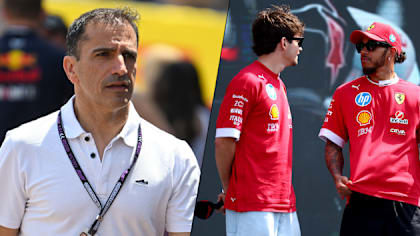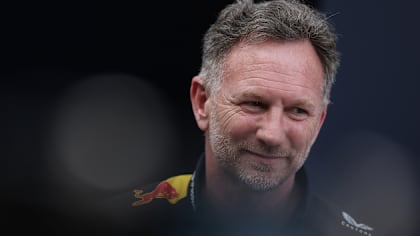)
Feature
EXPLAINED: Why Russell was stripped of Belgian GP victory, the rule that was broken and how it could have happened

Share
)
George Russell looked to have pulled off the most sensational of victories with a drive so good, his boss Toto Wolff called him the “Tyre Whisperer”. However, the stewards stripped him of the win after the race. Why did they do that? What rule was broken? And what was the reaction?
So, what happened after the race?
Russell was celebrating with his team – and rightly so, as he drove brilliantly to make a one-stop work, fending off team mate Lewis Hamilton on fresher tyres in the closing stages – when a Technical Delegate’s report was released stating there was an irregularity with Russell’s Silver Arrows.
The report said that while the car had initially been found to be compliant with the minimum weight of 798kg, 2.8 litres of fuel was then removed.
“The car was not fully drained according to the draining procedure submitted by the team in their legality documents as TR Article 6.5.2 is fulfilled.
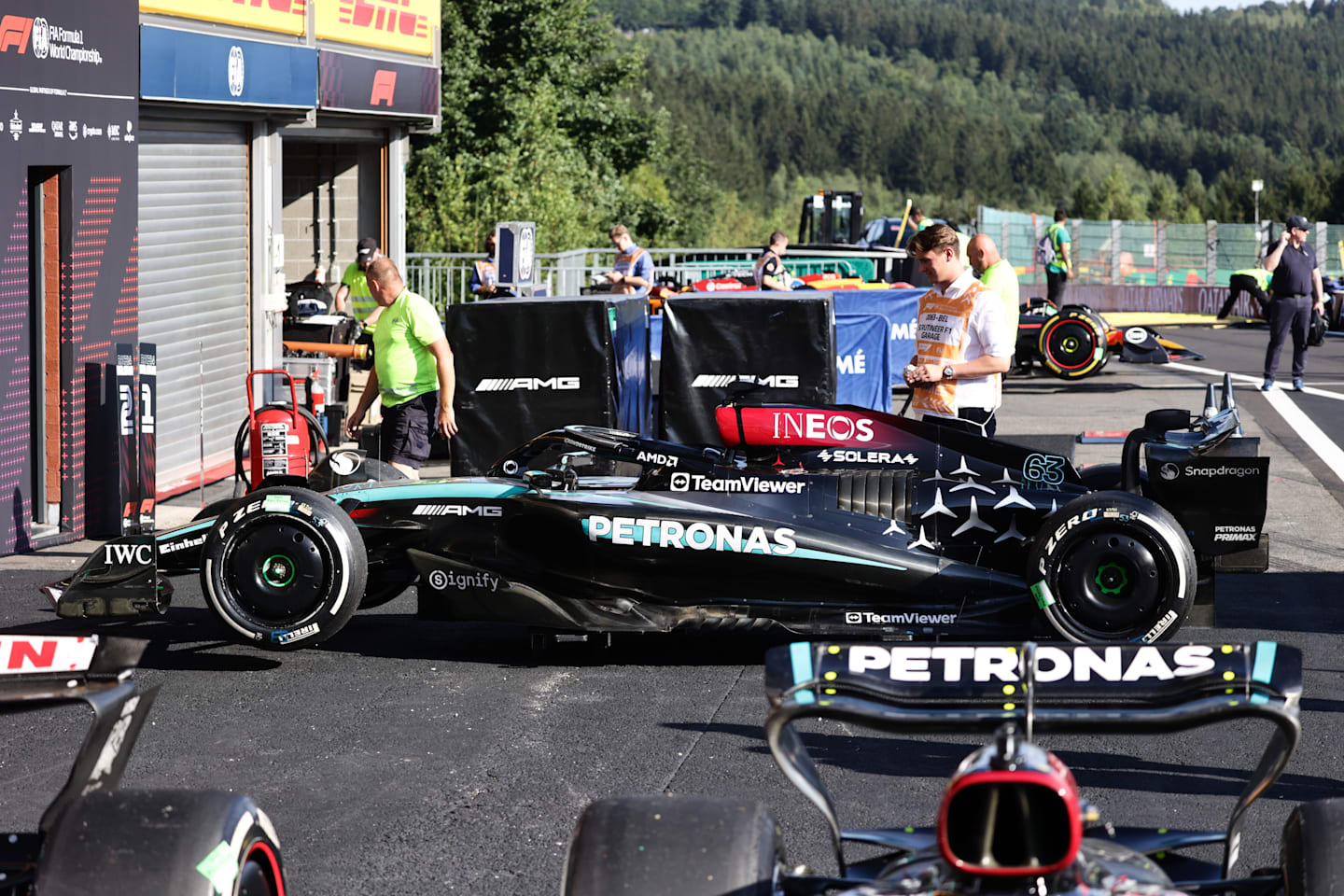
George Russell's car was found to be underweight after the Belgian Grand Prix
“The car was weighed again on the FIA inside and outside scales and the weight was 796.5kg (after the draining). The calibration of the outside and inside scales was confirmed and witnessed by the competitor.
“As this is 1.5kg below the minimum weight requested in TR Article 4.1, which also has to be respected at all times during the competition, I am referring this matter to the stewards for their consideration.”
READ MORE: Wolff apologises to Russell after Mercedes ‘mistake’ leads to Belgian GP disqualification
Remind me, what is Article 4.1 of F1’s Technical Regulations?
This relates to the minimum weight of a Formula 1 car. “The mass of the car, without fuel, must not be less than 798kg, at all times during the competition”.
Across practice sessions and at any point before qualifying, this rule doesn’t apply as cars are only weighed after competitive sessions – qualifying and the race.
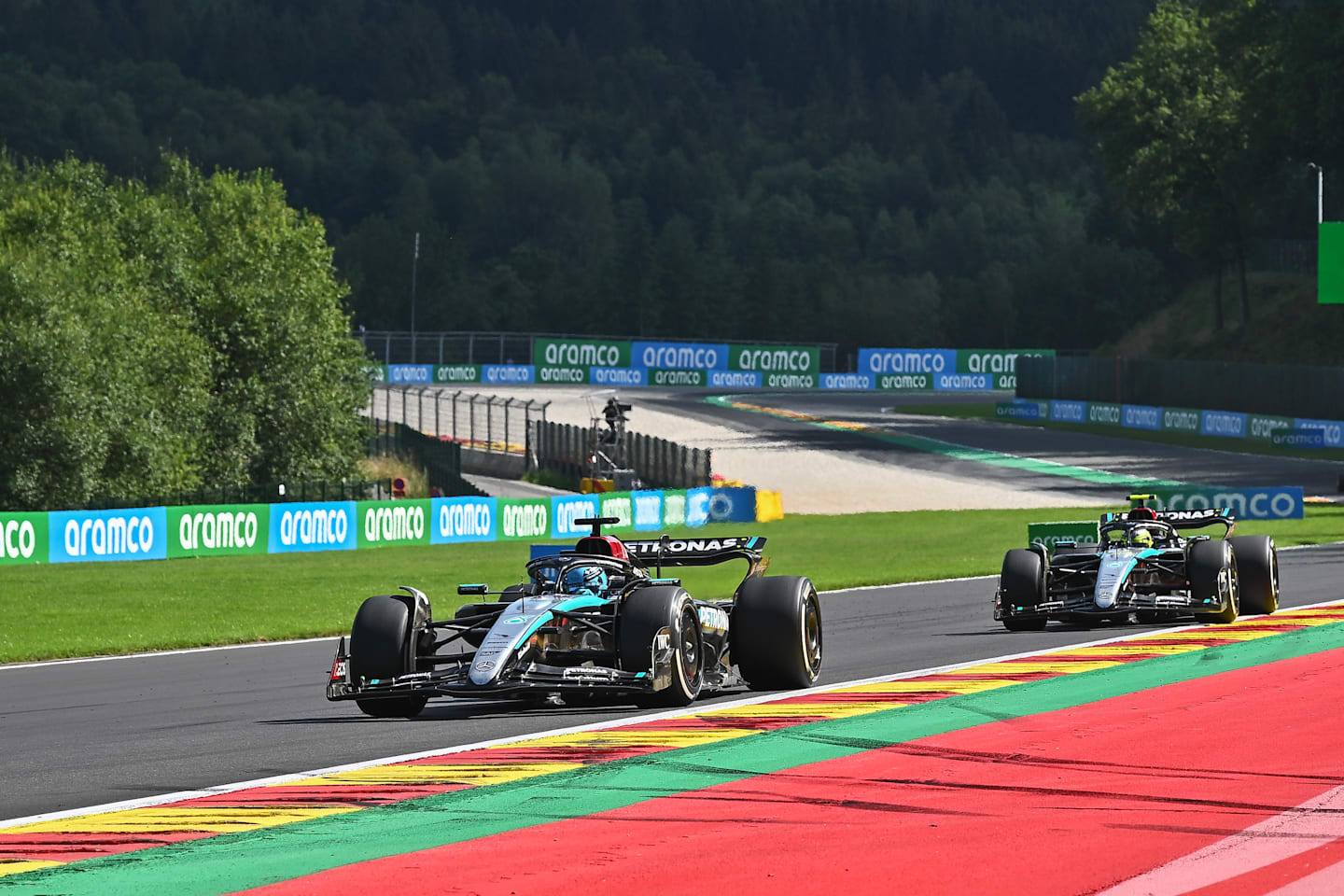
Russell had seemingly pulled off an expert one-stop strategy to lead team mate Hamilton across the finish line for a Mercedes 1-2 result
And what about Article 6.5.2 of the Technical Regulations?
This relates to the requirements of each car having to be drained of fuel but in the knowledge “competitors must ensure that a 1.0 litre sample of fuel may be taken from the car at any time during the competition”.
Gotcha. So, when the car was drained of fuel correctly, Russell was underweight by 1.5kg?
Yep, you’ve got it. And that is a breach of the rules.
"During the hearing the team representative confirmed that the measurement is correct and that all required procedures were performed correctly,” said the stewards.
“The team also acknowledged that there were no mitigating circumstances and that it was a genuine error by the team.
"The stewards determine that Article 4.1 of the FIA Formula 1 Technical Regulations has been breached and therefore the standard penalty for such an infringement needs to be applied."
Race Highlights: 2024 Belgian Grand Prix
What did the team say?
Quite simply, Mercedes admitted they had made a mistake.
“We have to take our disqualification on the chin,” said Mercedes Team Principal Toto Wolff. “We have clearly made a mistake and need to ensure we learn from it.
“We will go away, evaluate what happened and understand what went wrong. To lose a 1-2 is frustrating and we can only apologise to George who drove such a strong race.
“Lewis is of course promoted to P1l he was the fastest guy on the two-stop and is a deserving winner.”
How could this have happened?
The team need time to investigate it all, but it is possible Russell’s one-stop strategy – he was the only frontrunner to not do two stops – could be the culprit.
“We don’t yet understand why the car was underweight following the race but will investigate thoroughly to find the explanation,” said trackside chief Andrew Shovlin.
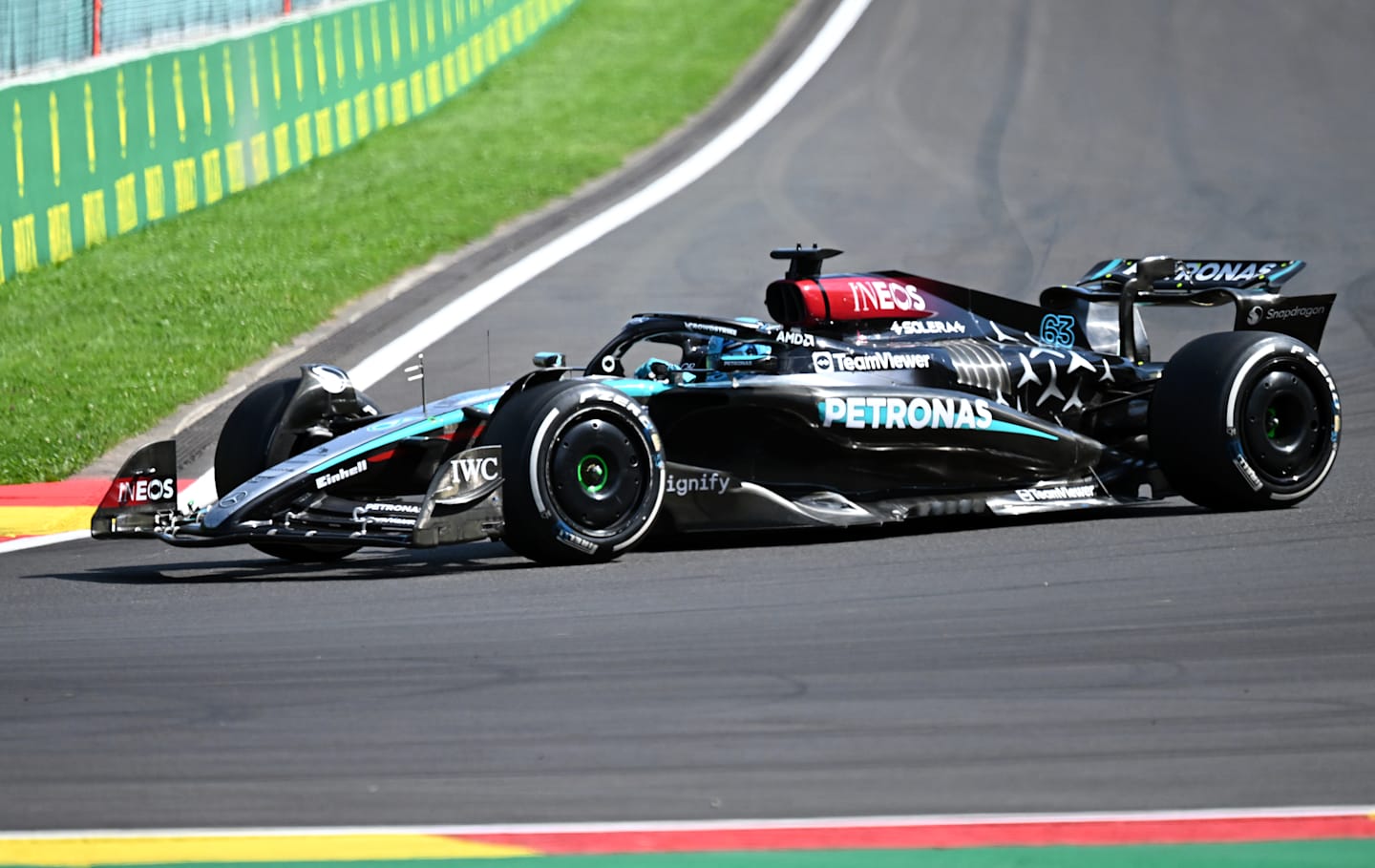
Mercedes admitted after the disqualification that they had made a mistake
“We expect that the loss of rubber from the one stop was a contributing factor – and we’ll work to understand how it happened.”
It’s not an exact science – but a set of four tyres can lose around one kilogram across a stint. Teams would take this into account, though, in pre-race calculations.
READ MORE: Norris left frustrated by ‘embarrassing’ moment that ‘ruined my chances’ in Belgian GP
Equally, they would also know that as Spa is such a long lap, there is no slow down lap after the chequered flag. Instead the cars turn back into the pit lane at the exit of Turn 1.
This means that there is no opportunity for drivers to run offline and pick up marbles – shavings of rubber that fly off the tyres during the race.
Shovlin added: “We won’t be making any excuses though. It is clearly not good enough and we need to make sure it doesn’t happen again.”
YOU MIGHT ALSO LIKE
News Bayer admits Lawson left ‘sad and puzzled' by Red Bull seat swap as he predicts New Zealand driver 'will be back and he will be quick'
Podcast F1 NATION: Piastri to push on? Norris to bounce back? Verstappen the underdog? It’s our Miami Grand Prix preview
News Marc Gene hails Ferrari’s Hamilton/Leclerc line-up as the ‘best’ in F1 – but admits he felt ‘sorry’ for Sainz
News Horner hails ‘most competitive race to date’ for Red Bull as he insists 'we were quicker' than McLaren in Jeddah



